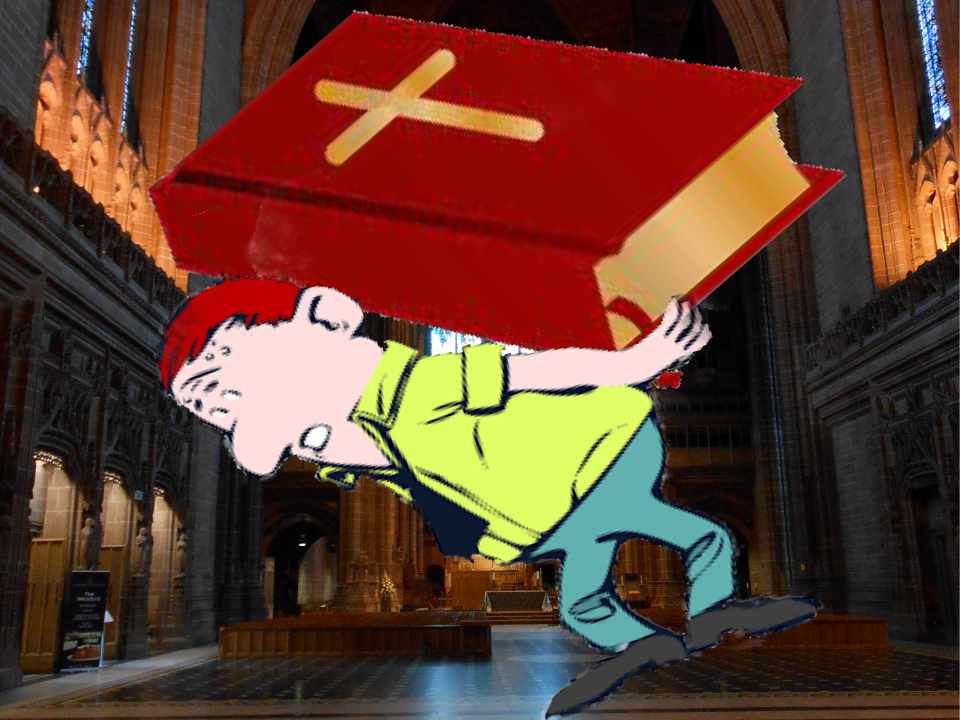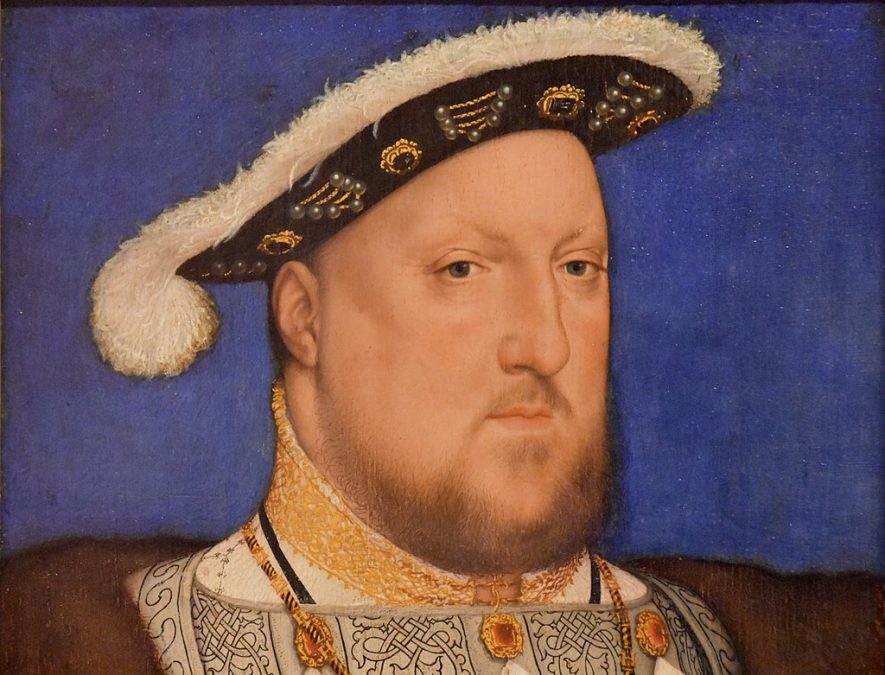
Peter Liddell – The Fall of Kabul: An Unhappy Anniversary
August 17, 2022
Love? Faith?
September 7, 2022This is the second of two responses to William Cavanaugh’s The Myth of Religious Violence. I wasn’t expecting it to be bang up to date with this morning’s news, but last night’s response by Liz Truss to a question about ethics advisers illustrates exactly the point I was planning to address.
Cavanaugh’s ‘myth’ is that the wars of the sixteenth and seventeenth centuries were driven by religious disagreements, and were brought to an end by the rise of nation states. My earlier post describes his argument that the rise of nation states caused the wars rather than ending them.
Nevertheless the myth is still often cited as a moral justification for expelling religion from public affairs and giving the nation state a monopoly on violence.
I have no wish to argue that all was well with religious doctrine. The rise of nation states, in that era from the 15th to the 17th centuries, was also the time when church leaders were at their most oppressive with their fantasies about the tortures awaiting the damned after death. But the threats of hell generated atheism rather than wars.
Before the changes began – up to, roughly, the fifteenth century – rulers in Latin-speaking western Europe accepted that they owed allegiance to the Pope. Whether and when it was permissible to kill someone was a moral question, to be answered by the Church as God’s spokespeople. Kings and popes had inherited from Constantine, and Constantine had inherited from previous emperors right back to the beginning of history, the belief that divine authority gave rulers the job of killing enemies.
Medieval kings did of course go to war, with or without the Pope’s permission, but there remained that moral principle. Whether a king should go to war wasn’t merely for each king to decide. There was also the question of whether it was right, and this should be judged by the Pope as universal moral authority on how God wants us to live.
Later, the distinction disappeared. Ever since the end of the seventeenth century nation states, and only nation states, are morally permitted to use violence.
But – hold on! Where does that moral permission come from? Just the say-so of megalomaniacs like Henry VIII and Hitler? Who is going to be persuaded by that?
Two versions of the myth
The myth – that the rise of nation states brought wars to an end – came, Cavanaugh tells us, in two versions, which he calls absolutist and liberal.
The absolutist version
The absolutist version came first. After the Reformation rulers increasingly claimed authority over the church in their realms. Instead of the ruler owing allegiance to the Pope, the national church owed allegiance to the ruler. Thus Luther in Germany and Henry VIII in England claimed to replace the Pope as supreme moral authority over public matters. It therefore suited them to draw a line between public, bodily matters, over which they claimed authority, and the inward thoughts of the soul which they were happy to delegate to religious authorities.
To enable this change, what happened was a “migration of the holy” from church to state. The most extreme instance was France:
The fifteenth century saw the monarchy borrowing wholesale sacred rituals and formulae from the church to express sacred solidarity with the Crown. The dictum “one king, one faith, one law” was a transmutation of the biblical formula “one God, one faith, one baptism.” The feast of Corpus Christi was mined for ceremonies marking the entrance of the king into a city… Charles VIII was welcomed to Rouen with the titles “Lamb of God, saviour, head of the mystical body of France, guardian of the book with seven seals, fountain of life-giving grace to a dry people, and deified bringer of peace.”… The cult of the king reached its zenith under the “Sun King,” Louis XIV, at Versailles, where elaborate court rituals were staged to emphasize the close association of the king with the godhead.
Perhaps Voltaire’s attitude is as good as any forerunner to today’s myth. His main concern was to protect civic order. He approved of ‘state religion’: an official class of ministers who maintain a public cult and teach good morals, and are answerable to the government. He contrasted this with ‘theological religion’, which is
the mother of fanaticism and civil discord.
State religion might not be truer than theological religion, but it was better at maintaining order – which was what really concerned Voltaire.
Thus the ruler took over from the Church the claim to holiness. Religious disunity was to be overcome by the state imposing religious unity.
To modern secularists this may seem unnecessary, but in fact it was an essential step on the way to turning the nation state into the supreme moral authority. The state or its king had to appear as divine because from then on the people were expected to kill and die for the nation. Why should anyone do that? The nation had to be presented as a successor to the Church, imbued with divine authority.
The liberal version
Today the absolutist version of the myth is all but forgotten. It is the liberal version which holds sway. This version denies the role of public religion altogether. The state should not prefer one religion to another; instead, religion is to be understood as entirely a private matter.
Cavanaugh has little time for this version. It didn’t arise until at least a century after the end of the seventeenth century wars, so to claim that it helped end them is anachronistic.
We might say that it could not have arisen until after Europeans had got so used to attributing moral authority to nation states that they no longer questioned it. To jump straight from fifteenth-century doctrines of the Pope’s authority to liberal secularism would have been blatantly absurd: why should anyone imagine that their own national government could be relied on to do the right thing?
Holiness and the nation state
France’s ‘migration of the holy’ was an exceptional case. Its extremes are in the past. But the drive to present the nation state as somehow divine continues. Of course secular society can’t now use the language of gods. It has to keep its moral authorities vague and undefined because defining them would make them sound religious. So moral authority is kept at the level of vague nonsense.
But it is still very much with us. I dread to think what mantras Uighurs are being forced to recite by the Government of China to convince them that they are really Chinese, so that China can define itself as a nation state. But best known is the way American culture expects due veneration of its flag from its citizens. Outsiders find it ridiculous. It is, after all, secularism’s most influential religion.
This is the context within which I find myself reflecting on Liz Truss’s response to the question of an ethics adviser:
I do think one of the problems we have got in this country in the way we approach things is we have numerous advisers and independent bodies, and rules and regulations. For me, it’s about understanding the difference between right and wrong, and I am somebody who has always acted with integrity…and that is what I would do as prime minister.
Everything depends on where she gets her ideas of right and wrong from. Her record so far doesn’t fill us with confidence; but my point is that undefined waffle about right and wrong is the best we can expect now.
Every government feels the need to offer some kind of moral justification for taxing its citizens, conscripting them into its war machine and forbidding whatever it forbids. If a government sticks to liberal secular principles, it cannot appeal to any moral authority higher than itself. Logically, all it can offer is ‘It’s right because we have decided to count it as right’.
In practice governments, however secular they are in theory, do appeal to transcendent moral principles. They do in fact draw on some kind of ‘religion’ – exactly the thing liberal secularism is supposed to have banished.
So we muddle along, keeping our moral language vague. Truss’ response to last night’s question does perhaps reveal an excessive confidence in her moral competence, but otherwise it’s a classic of our morally clueless society. Does it mean that she is committed to some transcendent moral rules and as prime minister will never break them? Or does it mean that like Henry VIII she will consider her decisions morally binding as well as legally binding? Every experienced politician knows to keep those options open. But it means that, as a society, we don’t know what we ought to be doing.




